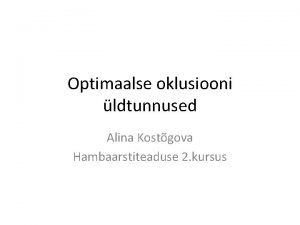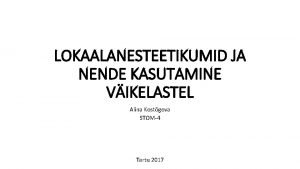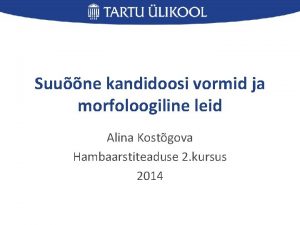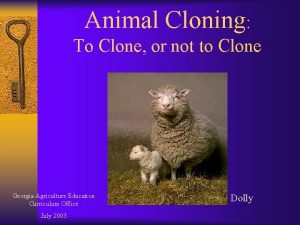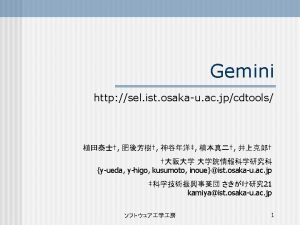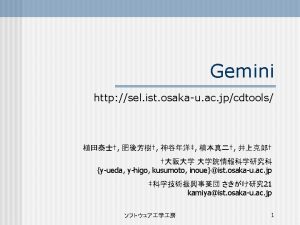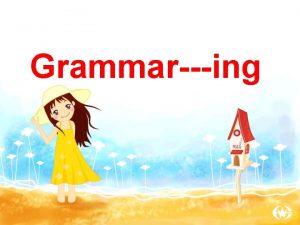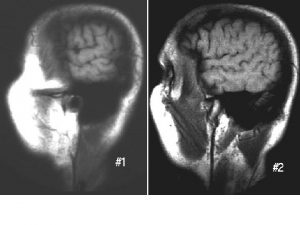To clone or not to clone Matykhina Alina
















- Slides: 16

To clone or not to clone? Matykhina Alina 11 “A”

The purpose of work to answer questions: • What exactly is cloning? • The history of cloning? • The process of cloning? • To clone or not to clone?

What exactly is cloning? l Cloning is the creation of an organism that is an exact genetic copy of another. This means that every single bit of DNA is the same between the two!

You might not believe it, but there are human clones among us right now. They weren't made in a lab, though: they're identical twins, created naturally.

The history of cloning. The human found the cloning 200 years ago, the first person who did the cloning experiment is a German biologist named Han Spermann, he uses the egg white to clone chicken in 1938 but it was failed.

The world was stunned by the news in late February 1997 that a British embryologist named Ian Wilmut and his research team had successfully cloned a lamb named Dolly from an adult sheep. Dolly was created by replacing the DNA of one sheep's egg with the DNA of another sheep's udder. The world media was immediately filled with heated discussions about the ethical implications of cloning. Scientists and ethicists have debated the implications of human and non -human cloning extensively when scientists at the Roslin Institute in Scotland produced Dolly.

Dolly was the first cloned animal. She was born in 1996 and was hailed as a scientific breakthrough when her birth was announced in early 1997. Dolly made headlines around the world and launched a public debate about the possibilities of cloning.

The process of cloning.

Cloning people.

No direct conclusions have been drawn, but compelling arguments state that cloning of both human and nonhuman species results in harmful physical and psychological effects on both groups. Many people are convinced that the cloning of any species, whether they are human or non-human, is ethically and morally wrong. Cloning of human beings would result in severe psychological effects in the cloned child, and that the cloning of non-human species subjects them to unethical or unmoral treatment for human needs. The possible physical damage that could be done if human cloning became a reality is obvious when one looks at the sheer loss of life that occurred before the birth of Dolly. Less than ten percent of the initial transfers survive to be healthy creatures.

To clone or not to clonе? My opinion: In my opinion, human cloning experiments are extremely dangerous because there are huge risks of abnormalities in human clones. Moreover, if clones have been made, they will obviously have serious psychological problems connected with their unusual birth. Finally, there is no doubt that human cloning will change our perception of what is the value of a human life as we might change from having children to manufacturing them.

However, scientists claim that human cloning could be very beneficial as therapeutic cloning could provide stem cells for regenerative medicine and tissues for transplantation. Besides, reproductive cloning will probably give parents who are both infertile an opportunity to have children. I am afraid that this technology is not safe enough to use on humans. It is also possible that clones will age quicker since the cell used in the cloning procedure has already been used in a real life individual.

To sum up, we must question whether human cloning is really worth it when weighed against the problems it raises. From my point of view, human reproductive cloning should be under the tight control of the government and the UN because it is dangerous to interfere with nature and the consequences can be really disastrous.

Сloning is a controversial issue. Some people are ready to eat cloned fruits and vegetables but many people are against cloning animals. They think it is morally unacceptable. The question of human cloning is even more controversial.

Results of poll: 22%-for; 35%-against; 43%-don't know









